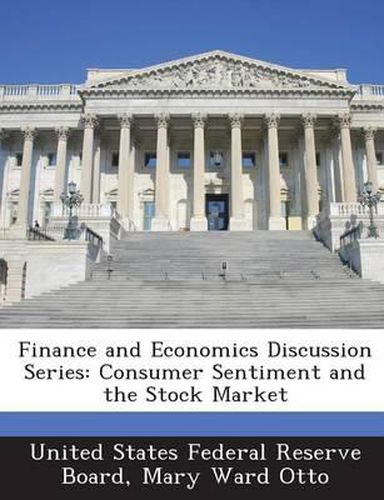Readings Newsletter
Become a Readings Member to make your shopping experience even easier.
Sign in or sign up for free!
You’re not far away from qualifying for FREE standard shipping within Australia
You’ve qualified for FREE standard shipping within Australia
The cart is loading…






This paper examines the relationship between movements in consumer sentiment and stock prices. At the aggregate level, the two share a strong contemporaneous relationship: an increase in equity values boosts sentiment. However, I examined the nature of the relationship between the two. Does an increase in stock prices raise aggregate sentiment because people are wealthier or because they use movements in stock prices as an indicator of future economic activity and potential labor income growth? Using individual observations from the Michigan survey I found results more consistent with the view that people use movements in equity prices as a leading indicator. Although the findings do not rule out a traditional wealth effect, they do raise some questions about the causal role of wealth in aggregate spending.
$9.00 standard shipping within Australia
FREE standard shipping within Australia for orders over $100.00
Express & International shipping calculated at checkout
This paper examines the relationship between movements in consumer sentiment and stock prices. At the aggregate level, the two share a strong contemporaneous relationship: an increase in equity values boosts sentiment. However, I examined the nature of the relationship between the two. Does an increase in stock prices raise aggregate sentiment because people are wealthier or because they use movements in stock prices as an indicator of future economic activity and potential labor income growth? Using individual observations from the Michigan survey I found results more consistent with the view that people use movements in equity prices as a leading indicator. Although the findings do not rule out a traditional wealth effect, they do raise some questions about the causal role of wealth in aggregate spending.